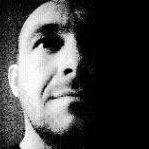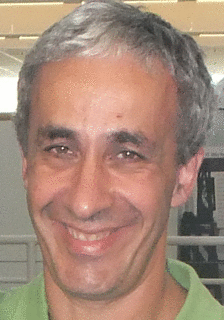Program
Introductory Keynote Prof. Marco Loog

|
Prof. Marco Loog Pattern Recognition Laboratory TU Delft, The Netherlands University of Copenhagen Dealing with Weakly and Partially Annotated Data Slides Obtaining sufficient annotated data remains one of the main obstacles in successfully deploying supervised learning in biomedical imaging, even in this era of big data. I give a brief, and probably fairly rapid, overview of various machine learning and pattern recognition techniques that aim to exploit data that is only weakly or partially labeled so to potentially reduce the need for annotations. I will cover approaches like semi-supervised, multiple instance, transfer, and active learning and set out to identify some core challenges in these areas. Short bio Marco Loog received an M.Sc. degree in mathematics from Utrecht University and a Ph.D. degree from the Image Sciences Institute. Subsequently, he moved to Copenhagen where he acted as an assistant and, eventually, associate professor, next to which he worked at Nordic Bioscience. Currently, Marco is affiliated to the Pattern Recognition Laboratory at Delft University of Technology. He is also an honorary professor in pattern recognition at the University of Copenhagen. Marco's principal research interest is with supervised pattern recognition in all sorts of shapes and sizes. |
Keynote Prof. Pascal Fua

|
Prof. Pascal Fua Computer Vision Laboratory EPFL Switzerland Domain Adaptation for Microscopy Imaging Slides Electron and Light Microscopy imaging can now deliver high-quality image stacks of neural structures. However, the amount of human annotation effort required to analyze them remains a major bottleneck. While Machine Learning algorithms can be used to help automate this process, they require training data, which is time-consuming to obtain manually, especially in image stacks. Furthermore, due to changing experimental conditions, successive stacks often exhibit differences that are severe enough to make it difficult to use a classifier trained for a specific one on another. This means that this tedious annotation process has to be repeated for each new stack. In this talk, we will present domain adaptation algorithms that address this issue by effectively leveraging labeled examples across different acquisitions. This drastically reduces the annotation requirements. Our approach can handle complex, non-linear image feature transformations and scales to large microscopy datasets that often involve high-dimensional feature spaces and large 3D data volumes. Short bio Pascal Fua received an engineering degree from Ecole Polytechnique, Paris, in 1984 and the Ph.D. degree in Computer Science from the University of Orsay in 1989. He joined EPFL (Swiss Federal Institute of Technology) in 1996 where he is now a Professor in the School of Computer and Communication Science. Before that, he worked at SRI International and at INRIA Sophia-Antipolis as a Computer Scientist. His research interests include shape modeling and motion recovery from images, analysis of microscopy images, and Augmented Reality. He has (co)authored over 300 publications in refereed journals and conferences. He is an IEEE Fellow and has been an Associate Editor of IEEE journal Transactions for Pattern Analysis and Machine Intelligence. He often serves as program committee member, area chair, and program chair of major vision conferences and has cofounded two spinoff companies. |
Schedule
* Accepted papers are published Lecture Notes in Computer Science series * Link to the Volume "Deep Learning and Data Labeling for Medical Applications" Proceedings| 14:00-14:05 | Introduction Diana Mateus Slides |
| 14:05-15:00 | Introductory Keynote by Marco Loog, TU Delft
Dealing with Weakly and Partially Annotated Data Slides. |
| 15:00-16:00 | Selected oral presentations (12 min + 5 min questions each) |
|
Hierarchical Feature Extraction for Nuclear Morphometry-based Cancer Diagnosis
Chi Liu*, Carnegie Mellon University Playsourcing: A Novel Concept for Knowledge Creation in Biomedical Research Shadi Albarqouni*, Technische Universität München, Germany Focused Proofreading to Reconstruct Neural Connectomes from EM Images at Scale Stephen Plaza*, Janelia Research Campus, HHMI | |
| 16:00-16:30 | Break |
| 16:30-17:15 | Keynote by Prof. Pascal Fua, EPFL
Domain Adaption and Active Learning for Microscopy Slides |
| 17:15-18:00 | Poster session and Demos (Also including oral papers + possibility to run demos on computers) |
|
Early Experiences with Crowdsourcing Airway Annotations in Chest CT Poster Veronika Cheplygina*, Adria Perez-Rovira, Wieying Kuo, Harm Tiddens, Marleen de Bruijne Erasmus Medical Center, The Netherlands Hierarchical Feature Extraction for Nuclear Morphometry-based Cancer Diagnosis Chi Liu* Carnegie Mellon University Using Crowdsourcing for Multi-label Biomedical Compound Figure Annotation Alba Garcia Seco de Herrera*, Roger Schaer, Sameer Antani and Henning Müller National Library of Medicine and University of Applied Sciences Western Switzerland, Sierre (HES-SO) Towards the Semantic Enrichment of Free-text Annotation of Image Quality Assessment for UKBB Cardiac Cine MRI Scans Valentina Carapella*, Ernesto Jimenez-Ruiz, Elena Lukaschuk, Nay Aung, Kenneth Fung, Jose Paiva, Mihir Sanghvi, Stefan Neubauer, Steffen Petersen, Ian Horrocks, Stefan Piechnik University of Oxford and Queen Mary University of London Focused Proofreading to Reconstruct Neural Connectomes from EM Images at Scale Stephen Plaza* Janelia Research Campus, HHMI Hands-Free Segmentation of Medical Volumes via Binary Inputs Florian Dubost*, Loic Peter, Christian Rupprecht, Benjamin Gutierrez-Becker, Nassir Navab Technische Universität München and John Hopkins University Playsourcing: A Novel Concept for Knowledge Creation in Biomedical Research Shadi Albarqouni* Technische Universität München and John Hopkins University, Germany |